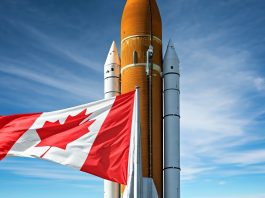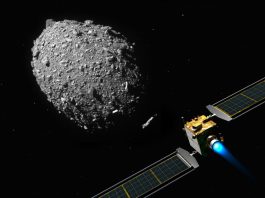Secured as part of the Space to Innovate Campaign – Charlie Drop, six organisations have received funding to advance technologies that improve the UK’s safety operations in space.
The organisations will share £1.6m to develop innovative technologies aimed at overcoming hurdles to promote safety operations in space.
The Space to Innovate Campaign aims to find and fund solutions to major space hurdles to promote space resilience and operational effectiveness.
The Space to Innovate Campaign – Charlie Drop is the third challenge in a joint collaboration between the Defence Science and Technology Laboratory (Dstl) and Defence and Security Accelerator (DASA).
Overcoming challenges in space
Innovators were invited to submit their innovative technologies and solutions to help overcome the following challenge areas:
- Challenge Area 1: Novel ways to achieve fine resolution collection for intelligence, surveillance & reconnaissance (ISR)
- Challenge Area 2: Technologies and techniques to alert, protect and defend satellites
- Challenge Area 3: Satellite and ground segment technologies for future security operations
Major General Paul Tedman, Commander, UK Space Command, said: “As space becomes increasingly contested and congested, the ability to harness novel technologies to ensure safety operations in space.”
Athos Ritsperis, Dstl Space Systems Programme Manager, added: “Accelerating the development of these technologies could contribute to the development of future operational concepts in support of the Defence Space Strategy. We look forward to working with all the contracted suppliers.”
Out-of-this-world technologies for safety operations in space
The six projects that have been awarded Space to Innovate Campaign – Charlie Drop funding are:
Nottingham Scientific Ltd – GMV NSL Limited
This project aims to develop an automated system for the identification of unattributed radio transmissions and for the prediction of the orbit of their source.
Surrey Satellite Technology Limited
This project aims to develop a fully deployable telescope for high-resolution Intelligence, surveillance, and reconnaissance (ISR) from a Medium-Earth Orbit (MEO).
Spectra Defence Limited
This project aims to develop an innovation that allows for high-resolution remote imaging and characterisation of unknown objects approaching high-value satellites in Geostationary orbits.
Super-Sharp Space Systems Ltd
This project aims to develop a control system to enable the self-alignment of large space telescopes.
University of Liverpool
This project aims to develop large-area antenna systems that can be stowed via origami folding and a novel deployment mechanism for utilisation in low-Earth orbit (LEO).
QinetiQ Ltd Farnborough
This project aims to dramatically improve the ability to sense small objects that are largely invisible to our current sensing capability and yet pose a significant threat to the operation of space assets.









